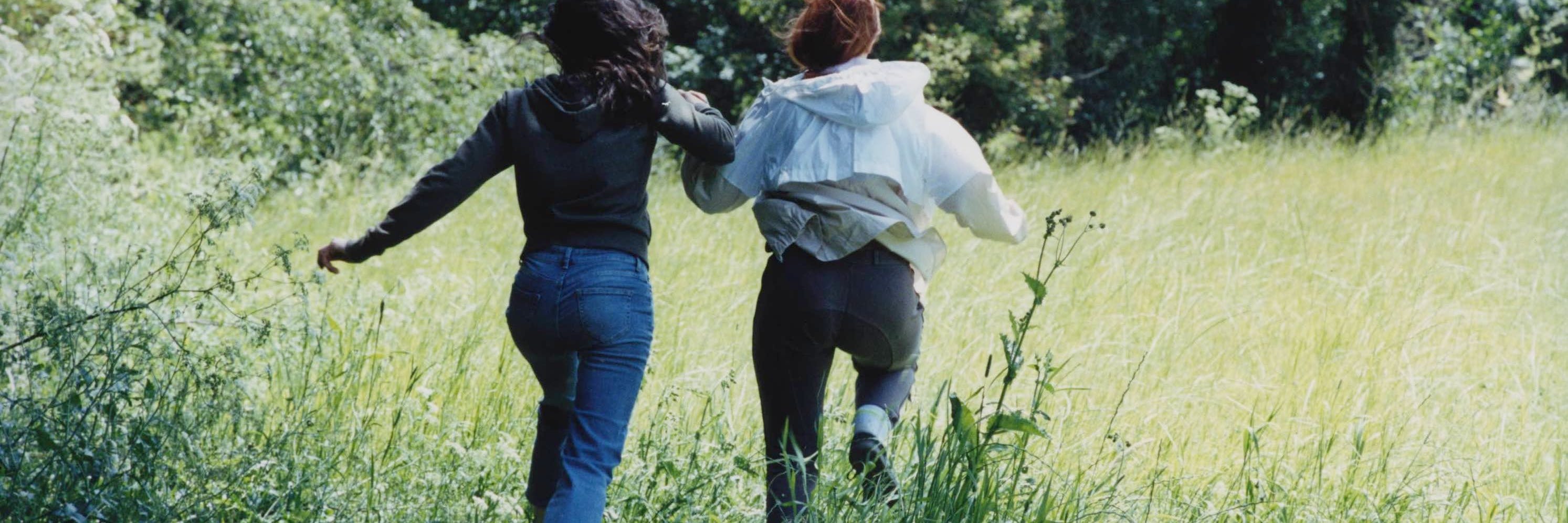

Having Sex After Female Genital Cutting
Having Sex After Female Genital Cutting
Saturday 6 February is the International Day of Zero Tolerance for Female Genital Mutilation. In this guest piece, Mariya Taher discusses Female Genital Cutting as a means of controlling and subduing female sexuality and the devastating effect it can have on the women who experience it. With a focus on story sharing, Mariya hopes to demystify societal conception of FGC by shedding light on the women reclaiming their pleasure.
Khatna. That’s the term I used to refer to female genital mutilation or cutting (FGM/C) as I was growing up in the Dawoodi Bohra religious tradition in the United States. But as a child, I didn’t know that khatna was considered a human rights violation and I didn’t know it was considered a form of gender violence. All I knew was that it happened to all girls who turned seven in the religious community I grew up in. Not until high school did I understand that khatna or FGC as I tend to call it, was the removal of part or all of the external female genitalia. The least drastic form of FGC involves the removal of part or all of the clitoris or clitoral hood. The most severe forms involve removing everything, including the labia minora and labia majora. Once I gained that information, I wondered what exactly had happened to me, and I began to wonder if my FGC at the age of seven would have any negative impact on my adult sex life.
This question isn’t one I’m alone in wondering about, but I wouldn’t break through that isolation of feeling alone with my question until many years later, after I co-founded Sahiyo in 2015. Sahiyo is an organization that seeks to use storytelling to raise awareness of the harmful impact of FGC by allowing women who have undergone it to come forward and share their stories. We do this because for too long, FGC has been clouded in secrecy and silence – passed down from generation to generation with the idea that it must be done for the betterment and protection of girls.
Globally, it is believed that 200 million women and girls have undergone FGM/C and women of all different backgrounds – religions, cultures, races, socioeconomic background, educational level, etc. – have undergone it. Despite an increasing amount of research highlighting the negative physical, emotional, and sexual harms of FGC, it persists in many cultures and communities because of this false idea.
"For too long, FGC has been clouded in secrecy and silence – passed down from generation to generation with the idea that it must be done for the betterment and protection of girls"
No one is sure of the exact origins of FGC, but the practice is believed to date back to at least 2000 years, beginning before the advent of Christianity and Islam. Some theories claim the origins of FGC are attributed to the ancient Egyptians who practiced it as a sign of distinction among the aristocracy, while others suggest the Romans started it to prevent their slaves from becoming pregnant, or to ensure their chastity and therefore, their value.
Whatever the true origin story is, today a plethora of reasons are given to explain it’s continuation (religion, culture, tradition, health, and sexual control, including to stop masturbation). This was the case for Renee Bergstrom , a white Christian woman cut by a U.S. doctor when she was three years old.
Reducing sexuality seems to be a common theme we at Sahiyo hear from a variety of groups in terms of why it continues or why they believe it continues, but even if controlling sexuality is not the predominant reason a group gives for its continuation (for instance in India, religious leaders in one community admittedly state that FGC is an identity marker to be considered part of their community), the fact remains that FGC can have a negative impact on their adult sexuality .
"Globally, it is believed that 200 million women and girls have undergone FGM/C and women of all different backgrounds – religions, cultures, races, socioeconomic background, educational level, etc. – have undergone it"
Throughout the past few years, women who have taken part in a variety of Sahiyo storytelling initiatives have shared this truth, and over and over I hear women reiterating the same question that I had when I first learned about FGC as a high schooler: “What effect has it had on my sexuality?”
From the stories we’ve collected, it is obvious that the answer varies from person to person. Personally, I feel fortunate in that I had the least severe form of FGC done in which only a piece of my clitoral hood was removed, and as a result, I don’t believe it has negatively affected me. Yet, throughout my life, I have had moments of doubt and wondered if my FGC had psychologically harmed me, without my recognizing it as such.
Other women I know can answer that question with a definite ‘yes’, as this anonymous woman shares in her story :
"Since it never crossed my mind that I would or could be sexually active before marriage, I only thought about khatna once or twice a year until I was married. And that’s when I realized that sexual intercourse was extraordinarily difficult for me. My vagina would convulse, and even the thought of using a tampon triggered these convulsions. My condition went undiagnosed until years later, when my OB/GYN attempted to do a pelvic exam. She had no warning because I did not tell her about my difficulty with intercourse. Peering over the stirrups, she apologized for causing me pain, and asked me to breathe deeply while apologizing rapidly: “Just one finger, I’m sorry I’m sorry I’m so sorry almost done almost done and relax.”
I learned that I had vaginismus, and needed physical therapy. As I talked through my condition with my wonderful doctor, I learned that an early childhood trauma was likely the cause for my vaginismus. The symptoms pointed towards a psychological trigger rather than physical limitations, and the more I reflected on my condition the clearer it became that I had always been unable to tolerate even the idea of penetration from around the age khatna had happened to me. Any kind of insertion seemed laughable to me as a teenager, whether I was washing myself in the shower or attempting to masturbate. This points to the idea that women who don’t consider themselves victims – and I certainly didn’t and don’t – can experience long-term effects of khatna that we may not even (or ever) be aware of."
Like the woman’s story above, many women have difficulty engaging sexually because any time someone touches their vagina, whether it’s an intimate partner or even a physician, they have a negative reaction.
The effect of FGC on one’s sex life can be psychological as well, as another woman shares in her story on Sahiyo’s blog:
"I am now a happily married woman with two beautiful children, but I feel a sense of deep remorse when I engage in sexual activity. I feel immoral, sinful and unclean. The trauma is so deep that the act itself becomes an unpleasant experience. It is difficult to be psychologically scarred and feel completely at ease."
Though there are a plethora of reasons for why FGC continues, growing up, I predominately heard that FGC was done because women were not supposed to be sexual. This justification is flawed for many reasons, but even if FGC is being done to control sexuality, removing part or all of a woman’s external female genitalia will not stop her from desiring or craving sex. FGC, I have learned, only produces more challenges/obstacles in allowing women to learn how they can enjoy sex with their partners.
It is possible to learn how to enjoy sex, even for women who have undergone the most severe forms of FGC. My friend and colleague, Sarian Karim Kamara , who underwent one of the most severe forms of FGC in which most of her clitoris and labia were removed when she was three years old in Sierra Leone, now lives in the United Kingdom teaching women who have undergone FGC to do just that.
"FGC is harmful and can cause long-lasting harm to one’s sex life, yet, from what I’ve learned, there are ways to continue to enjoy your sexuality"
I had the pleasure of meeting Sarian in 2016 at the Women Deliver conference in Copenhagen, Denmark. Right away, I was struck by her confidence and her infectious smile. I was also in awe of how freely she spoke about enjoying her sexuality with her husband, despite what had happened to her. She told me that it took time, but she had grown to love her body, to enjoy sex, and to even achieve orgasm. Her husband and herself had worked together to really understand what could give her pleasure when they were intimate. She taught me that women with FGC can have pleasure, but they have to be ready for it; their minds and bodies have to be ready; and their partners have to understand it. After hearing story after story of how women suffer in their sex lives because of FGC, meeting Sarian made me recognize just how vital it is that we look for ways to share information and resources (such as support groups, talk therapy, reconstructive surgery that can allow women the possibility of gaining back some of the sexual pleasure they may have lost as a result.
FGC is harmful and can cause long-lasting harm to one’s sex life, yet, from what I’ve learned, there are ways to continue to enjoy your sexuality — we only have to be open about discussing the challenges with one another and learning that there are ways to help women move forward. Yet, this in itself is a challenge considering many women may be reluctant to disclose about their FGC for fear of being judged since FGC is perceived by outsiders to be abnormal. The pervasive belief throughout many cultures that sexual matters are to be kept private also makes FGC-affected women inclined to keep quiet about their symptoms and suffer in silence or attribute their pain to other sources. Storytelling is one way in which Sahiyo has learned that we can create opportunities where people can come together to talk openly about FGC and their sex lives, and more importantly, their right to find ways to enjoy their sexuality.
To learn more, see Trauma and Female Genital Cutting, Part 4: Psycho-sexual functioning .

GET A FREE MOVIE














